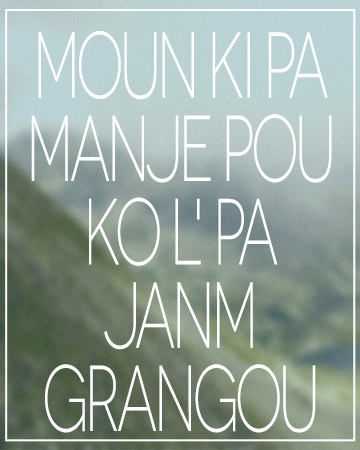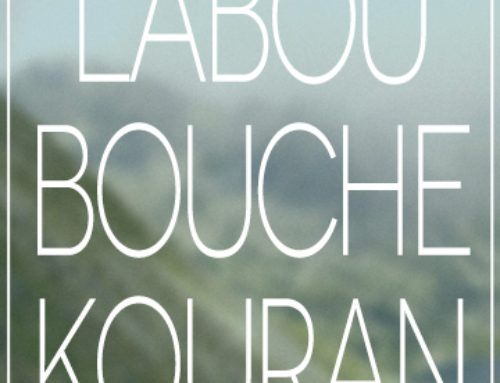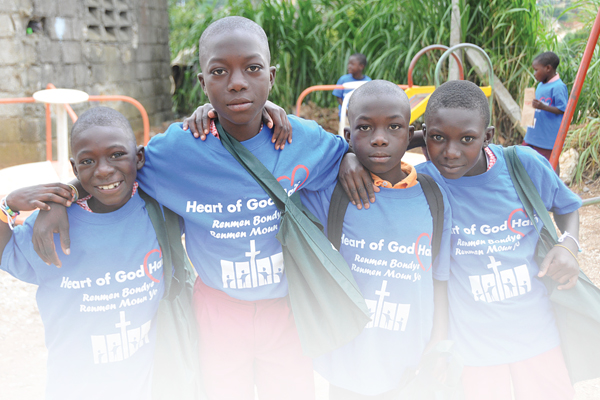“Moun ki pa manje pou ko l’ pa janm grangou.”
Translation: “Those who don’t eat alone are never hungry. Meaning, those who share will receive.”

After living in Haiti for some time and spending two years on an island in the Pacific I am beginning to see Americans seeming obsession with sharing. Most parents with young children spend a lot of time and energy training their children how to share. At a playground you can hear parents reminding their kids, “Now what did I tell you about sharing? If you want to play you have to learn how to share with the other kids.” Teachers stress sharing in school; you share your pen at the bank with a stranger when the two pens tied down to the desk don’t work; you share your recipe for gingerbread cookies with some ladies at church; you share your table at lunch with your co-workers. Sharing is a big deal in America and yet I feel like we fall short of what it really means to share. In both Haiti and the Pacific island I have seen a level of sharing that I don’t think most Americans would even consider. A few examples from Haiti:
Once I was walking with Francois on the mountain roads and we passed some of his friends working in a field. We said hello and kept moving along. After an hour or so we decided to turn around but first stopped at a little homefront shop for a drink. I bought Francois a 7Up. The guy is 70 something years old and we just walked for an hour so I knew he was thirsty. He had gotten a few sips in before we reached the field full of friends again. He set the 7Up on the side of the road and called to his friend that the beverage was for him. Honestly I don’t know that I would have done the same without being asked. I would have assumed, “Well if he gets thirsty he knows where to buy a Coke or water. Heck he probably brought some water with him. Besides I am going to need this for the walk back.”
Sometimes a little girl a couple houses down comes over during the day to play with the kids. She goes to our church, as do her parents, and is absolutely adorable. Naturally when the kids are called in to eat lunch she is called in as well. The women don’t send her home to eat, I don’t think that thought would ever enter their mind. They don’t grumble about her parents letting her come over everyday without sending any food or money with her to help out with our food expenses. She is welcome without question.
Any time we have construction work going on at the center, the workers share in our afternoon meal. Again it doesn’t appear to be handed out amidst grumbling and complaint. It is what it is. Sharing is just part of life, especially when it comes to food. In America I feel most people would assume construction workers would bring their own food or figure something out. “I am already paying them to do the work. I shouldn’t have to feed them too.”
In the states, now this is just my observation, sharing is done when it is easy. When it doesn’t take too much sacrifice. When it’s something small like a pen or an idea or a place at the table. In Haiti, people know that sharing is a kind of insurance. I share with you today and when my day of need comes I know you will be there prepared to share with me. Sharing stems from the strong sense of community that exists in small villages like Godet. It’s different in America where we stick to ourselves, stay in our homes, and probably don’t even know most of the people in our neighborhood. Haiti has challenged my thoughts in sharing and I hope it challenges yours as well.






Leave A Comment